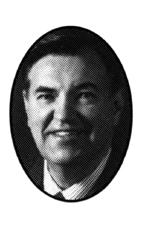Mr. Speaker, the Government of Canada has renewed, with the support of Parliament, a further six-month commitment as part of the UN forces.
Second, Canada is very active on the negotiation side and is trying through the diplomatic route to bring the parties to accept a peace settlement. We believe we are getting close to it.
Some of the parties still resist the process of a negotiated settlement but if we pursue it diligently, if we do not lose our cool, at the end there will be a peaceful solution. That is the course we prefer.

